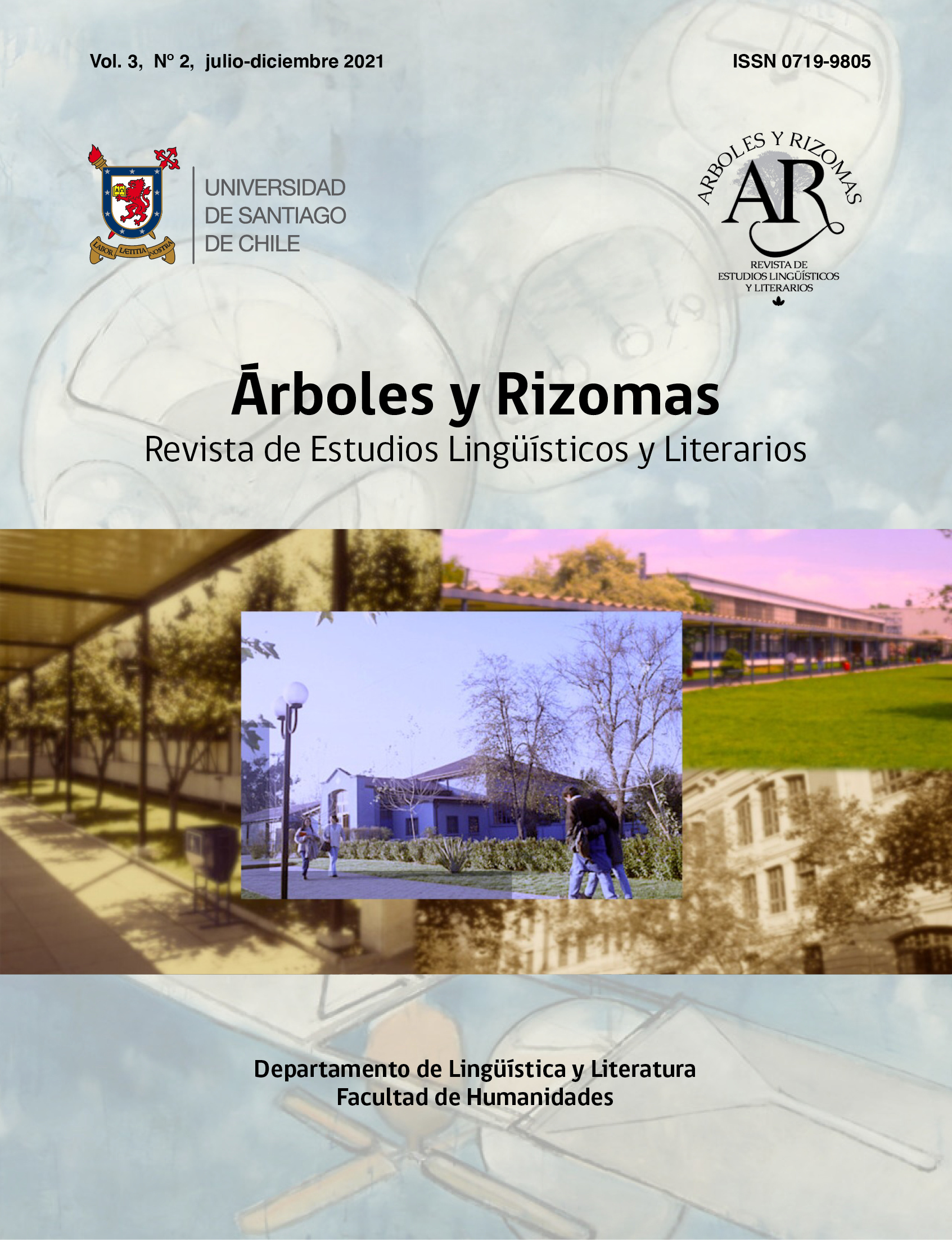The female experience and its connection with the territory in the poems Mujeres a la intemperie/ Pu zomo wekentu mew by Liliana Ancalao
DOI:
https://doi.org/10.35588/ayr.v3i2.4922Keywords:
poetry, body, place, territory, Liliana AncalaoAbstract
When the Argentinian government settled in the Mapuche territory, many existing communities ceased to exist. This caused the homogenization of social and cultural practices as part of the national project. In this scenario, the Puelmapu's mapuche poetry set the official discourse in tension by questioning monocultural discourses and the cultural, social and territorial situation. This poetry collects experiences from the erased or missing stories, the migrations, and the assimilation into the urban working world. The poetry of Liliana Ancalao emerges in this context, as the voice of a teacher and cultural activist who belongs to the Mapuche-Tehuelche community, Ñamkulawen. The aim of this article is to assert how the collection of poems Mujeres a la intemperie/ Pu zomo wekuntu mew (Women out in the open), republished as Resuello/ Neyen (Gasp), establishes a close link between the female experience and land recovery. The chosen poems evidence a direct relationship between body and place, unfolding several historical processes inscribed in her poetry. Through her writing, we can restore ties with the territory, memory, and identity by raising the visibility of the collective experience of women out in the open, forgotten by the master narratives.
Downloads
References
Ancalao, L. (2009). Mujeres a la intemperie. Pu zomo wekuntu mew. Buenos aires, Argentina: Elsuri porfiado.
Ancalao, L. (2018). Resuello. Neyen. Madrid: Marisma.
Araya, J. (2016). Aproximaciones al estudio ecocrítico de la literatura chilena. Logos: Revista de Lingüística, Filosofía y Literatura, 26(2),278-285.https://doi.org/10.15443/RL26021.
Bello, A. (2004). Intelectuales indígenas y universidad en Chile: conocimiento, diferencia y poder entre los mapuche. En R. Austin. (Ed.). Intelectuales y educación superior en Chile: de la Independencia a la transición democrática 1810-2001. (pp. 97- 132). Santiago de Chile: Editorial CESOC.
Binns, N. (2004). ¿Callejón sin salida? La crisis ecológica en la poesía hispanoamericana. Zaragoza: Prensas de la Universidad de Zaragoza.
Buell, L. (2005). The Future of Environmental Criticism: Environmental Crisis and Literary Imagination. Malden: Blackwell Publishing.
Casals, A. (2014). Fundamentos para la lectura ecocrítica en Chile. (Tesis doctoral). Pontificia Universidad Católica de Chile.
Flys, C. (2010). Literatura, crítica y justicia medioambiental. En C. Flys, J. M. Marreno y J. Barella. (Comp.), Ecocríticas. Literatura y medio ambiente. (pp. 85- 120) Madrid: Iberoamericana.
Huinao, G. (2009). Walinto. Santiago de Chile: Editorial Cuarto Propio.
Martínez Sarasola, C. (2013) . Nuestros indios los paisanos. Buenos Aires: Del nuevo extremo.
Mellado, S. (2014). Lenguas Kuñifal: Pasajes entre el Mapuchezungun y el castellano en Elicura Chihuailaf, Liliana Ancalao y Adriana Paredes Pinda. Recial, 5-6, 1-18. https://doi.org/10.53971/2718.658x.v5.n5-6.9586
Montecino, S. (1984). Mujeres de la tierra. Santiago de Chile: CEM.
Mora Curriao, M. (2018). Muestra de poesía mapuche. Trazas poéticas sobre una cartografía indígena incesante. Anales de la Universidad de Chile, (13), 165-218. 10.5354/0717-8883.2018.49003.
Moraga, F. (2011). Antesala inaugural en la escritura poética de mujeres mapuche durante las décadas de los años 70 y 80. En Moraga, F y Mora, M (Eds.) Kümedungun / Kümewirin. Antología poética de mujeres mapuche (Siglos XX – XXI). Santiago de Chile: LOM Editores.
Parekh, B. (2000). El etnocentrismo del discurso nacionalista. En A. Fernández. (Comp.), La invención de la nación. Lecturas de la identidad de Heder a Homi Bhabha. (pp. 91- 120) Buenos Aires: Ediciones Manantial SRL.
Paredes Pinda, A. (2005). Ül. Santiago de Chile: LOM Editores.
Rodríguez, E. (2014) El cuerpo como (pre) texto literario. Estudios Avanzados, 21 (jun), pp. 91- 110. http://www.revistaidea.usach.cl/ojs/index.php/ideas/article/view/1593
Rodriguez, E. (2018). El lugar como espacio de denuncia y significación en el poemario Wafpule Mülenymun (Aquí estamos) de Rubén Currico, English Studies in Latin America, 14. http://esla.letras.uc.cl/images/PDFS/ESLA-14/RODRIGUEZ.pdf
Radovich, J. (2013). Los mapuches y el estado neuquino: algunas características de la política indígena, Runa n° XXXIV (1), 13 – 29. Recuperado de http://www.scielo.org.ar/pdf/runa/v34n1/v34n1a02.pdf
Rojas, R. (2009). La lengua escorada. la traducción como estrategia de resistencia en cuatro poetas mapuche. Santiago de Chile: Pehuén.
Stocco, M. (2017). La autotraducción en la poesía mapuche como territorio de tránsitos, tensiones y resistencias. Estudios filológicos, (59), 185-199. http://dx.doi.org/10.4067/S0071-17132017000100010
Stocco, M. (2018). Traful: una propuesta de estudio de la autotraducción en poesía mapuche, Literatura: teoría, historia, critica, vol. 20, (1), 39 – 61.http://dx.doi.org/10.15446/lthc.v20n1.67276
Szulc, A. (2004). . Disputas en torno a lo rural y lo indígena en la Argentina, Política y sociedad, vol 41, (3), 167 – 180. Consultado de http://revistas.ucm.es/index.php/POSO/article/view/POSO0404330167A/23157






